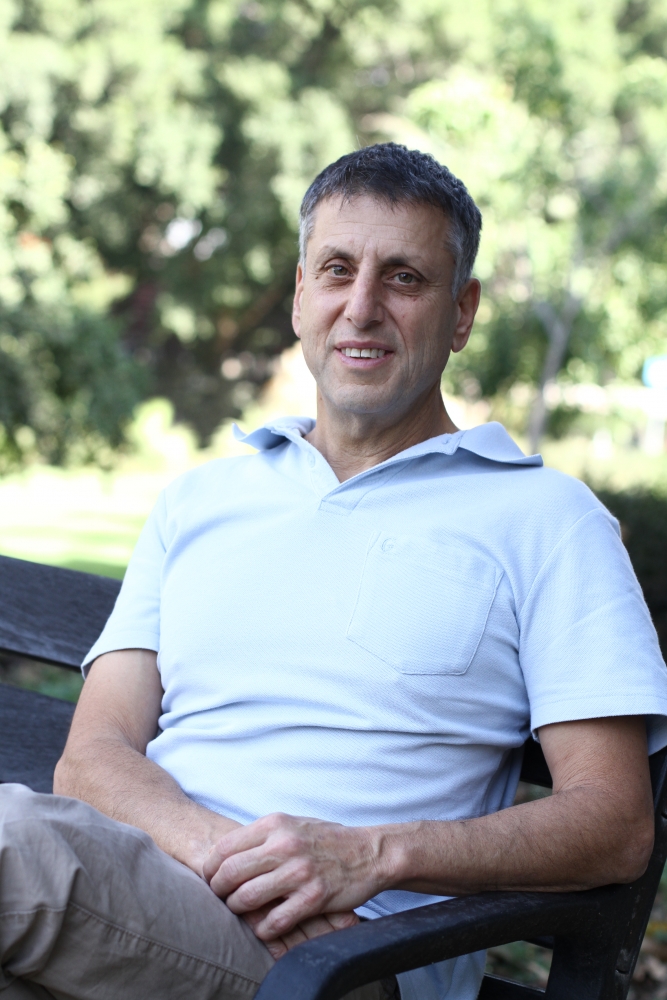Dan Tawfik (Weizmann Institute of Science in Rehovot, Israel)
 Speaker: Prof. Dan Tawfik (Weizmann Institute of Science in Rehovot, Israel)
Speaker: Prof. Dan Tawfik (Weizmann Institute of Science in Rehovot, Israel)
Talk: Laboratory molecular evolution
Time: Saturday 13th July 2013, 9:40
Talk: Protein strcuture-function in the light of molecular evolution
Time: Sunday 14th July 2013, 11:45
Venue: Biotechnology Summer School 2013, Intercollegiate Faculty of Biotechnology, Kładki 24
Category: Invited lectures during Biotechnology Summer School
Dan Tawfik, biographical note
 Born in Jerusalem, Prof. Tawfik received a B.Sc. in chemistry and biochemistry from the Hebrew University of Jerusalem in 1988, and an M.Sc. in biotechnology in1990. He did his doctoral work at the Weizmann Institute under the supervision of Profs. Zelig Eshhar and Michael Sela, and was granted a Ph.D. in 1995 on the basis of his thesis: “Towards Antibody-Mediated Peptide Hydrolysis.”
Born in Jerusalem, Prof. Tawfik received a B.Sc. in chemistry and biochemistry from the Hebrew University of Jerusalem in 1988, and an M.Sc. in biotechnology in1990. He did his doctoral work at the Weizmann Institute under the supervision of Profs. Zelig Eshhar and Michael Sela, and was granted a Ph.D. in 1995 on the basis of his thesis: “Towards Antibody-Mediated Peptide Hydrolysis.”
In 1996, Prof. Tawfik completed two years of postdoctoral research under Prof. Alan Fersht, at Cambridge University and the MRC Centre for Protein Engineering (UK). From 1997 to 2001, he held the position of senior research fellow at Sidney Sussex College, as well as at the MRC Centre for Protein Engineering, where he was appointed group leader in chemical biology in 1999. Prof. Tawfik joined the staff of the Department of Biological Chemistry at the Weizmann Institute of Science in thespring of 2001, where he serves now as full Professor. He has received numerous awards and fellowships, including the Sir Charles Clore Prize, the Weizmann Institute’s highest honor for a newly-appointed senior scientist, the Wolgin Prize, and the Haim Weizmann Prize by the City of Tel-Aviv, and the EMBO membership. He entered the field of protein evolution through his interest in enzyme engineering, when he realized that unraveling the mysteries of protein evolution is a charming intellectual endeavor and a powerful way of facilitating protein engineering. Research in the Tawfik laboratory integrates protein science, and chemical and evolutionary biology. Enzymes ranging from hydrolases to DNA methyltransferases are being studied, while addressing both the applicative and fundamental aspects of protein evolution. Proteins present a dichotomy. They are highly robust and remarkably proficient and specific. They can, nonetheless, rapidly change and adopt new structures and functions, as manifested in the rapid emergence of resistance in plants, insects, and bacteria, or of herbicide and pesticide degrading enzymes.





